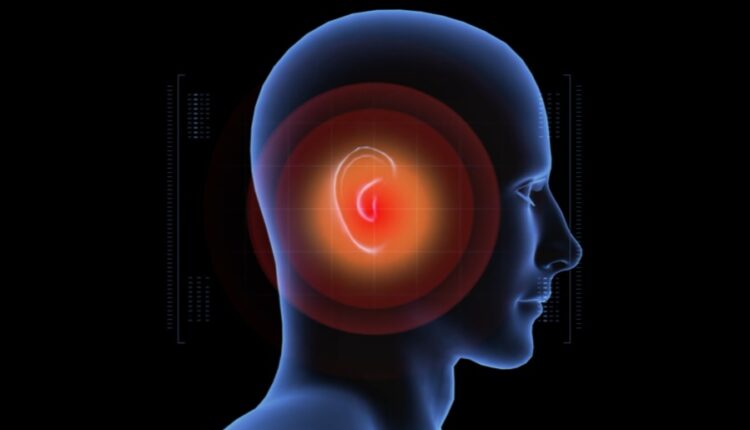
Over 19 Out Of 20 Tinnitus Sufferers Would Consider Cannabis As A Treatment Option
A new study has found that cannabis is commonly used among patients with tinnitus, a chronic conditions that has no permanent medical remedy. The revelation is yet another sign that the plant is being used as a self-treatment option by people where no viable alternatives exist.
The study, published in Biomed Central, was performed using an 18-item questionnaire, designed by the research team and adapted from a similar study investigating cannabis use in head and neck cancer patients. During a six month period, patients were randomly selected and recruited from an outpatient neuro-otology clinic of three practicing neurotologists via convenience sampling. Eligible adult patients included those who presented with a primary complaint of tinnitus. The questionnaires were voluntarily completed, and survey responses were anonymous.
Out of the fifty-three patients approached, forty-five patients completed the questionnaire, achieving a 85% response rate. The median age was 56 years (range 31–76) and skewed over 2:1 females (69%) to males (31%).
While the study was modest in size, the conclusions were stark: Overall, 96% of patients reported that they would consider cannabis as treatment for their tinnitus. The relief of auditory symptoms (91%) was the primary motivation, followed by emotional complaints (60%), sleep disturbances (64%), and functional disturbances (56%).

Furthermore, 80% of patients that were actively using cannabis (of the 22% of patients reporting cannabis use at the time of the study) reported that it helped with tinnitus-related symptoms, such as dizziness, anxiety, bodily pain, and sleep disturbances.
The results lead the study to conclude that “most patients would consider its use as a potential treatment to alleviate their tinnitus-related symptoms and are interested in learning more regarding its use.” Overall, 96% (43/45) of patients responded that they would consider cannabis as a treatment for their tinnitus.
What Is Tinnitus?
Tinnitus is a condition characterized by a perceived sound in the ears or head that is not actually present in the environment. It can manifest as ringing, buzzing, humming, clicking, hissing, or other types of sounds. Tinnitus can be temporary or chronic and can vary in intensity from mild to severe.
| Treatment Option/Drug | Description | Effectiveness | Side Effects | Availability |
|---|---|---|---|---|
| Cognitive Behavioral Therapy (CBT) | A type of talk therapy that helps patients manage their reactions | Effective for some patients, may reduce the impact of tinnitus on quality of life | Minimal side effects reported | Available through specialized tinnitus clinics or trained therapists |
| Sound therapy | Using external noise to mask the perception of tinnitus or provide distraction | Effective for some patients, may provide relief or reduce the impact of tinnitus on quality of life | Minimal side effects reported | Available through specialized clinics or as commercial products (e.g. white noise machines) |
| Medications | Various medications have been used to treat tinnitus, including antidepressants, anticonvulsants, and benzodiazepines | Effectiveness varies, some medications may reduce the perception or impact of tinnitus | Side effects vary depending on the medication | Prescription required, available through healthcare providers |
| Herbal supplements | Various herbal supplements have been used to treat tinnitus, including ginkgo biloba and zinc | Effectiveness varies, some supplements may reduce the perception or impact of tinnitus | Side effects vary depending on the supplement | Available over-the-counter, without a prescription |
| Tinnitus retraining therapy (TRT) | A form of sound therapy that combines sound enrichment with counseling | Suitable for some patients, may reduce the impact of tinnitus on quality of life | Minimal side effects reported | Available through specialized clinics |
The underlying cause of tinnitus is not fully understood, but it is often associated with damage to the auditory system. This can occur due to exposure to loud noises, aging, or certain medical conditions, such as ear infections, Meniere’s disease, or otosclerosis. Tinnitus can also be a side effect of some medications.
In addition to the perceived sound, the condition can cause other symptoms such as hearing loss, difficulty sleeping, anxiety, and depression. Treatment options for tinnitus include sound therapy, cognitive behavioral therapy, and medication, although there is no one-size-fits-all solution. In some cases, the best course of action is simply to manage the condition and learn coping strategies to help minimize its impact on daily life.
According to a recent study in JAMA Neurology, the prevalence and incidence of tinnitus suggests that the condition affects more than 740 million adults globally, and is perceived as a major problem by more than 120 million people—mostly aged 65 years or older.
In the U.S., it is estimated that approximately 50 million people, or 15.1% of the population, suffer from the condition in various forms.



